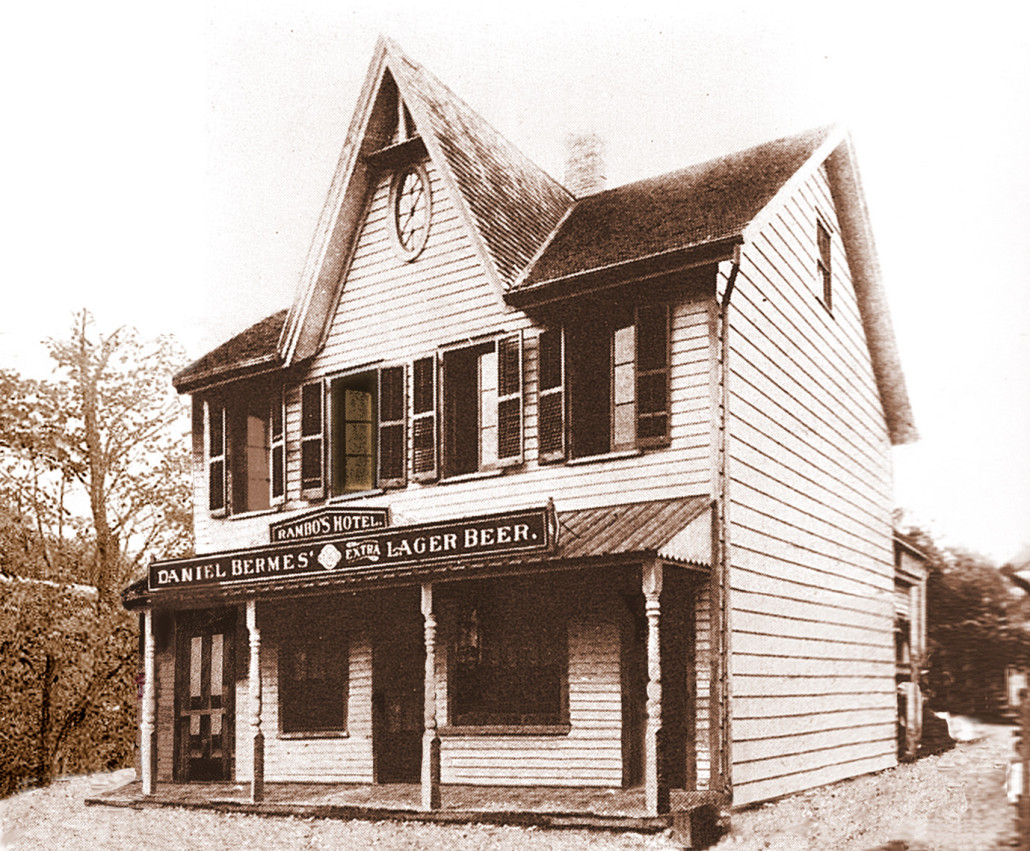Rambo’s Hotel was a favorite location spot for Biograph actors and other film companies looking for a rustic backdrop for their motion pictures in the early 1900s. Set back in the trees and grape arbors of Coytesville, New Jersey, it was just up the road from Fort Lee, at 2423 First Street.
A private residence since the 1860s, it was made into a five-room hotel by a French-Canadian couple named Rambeau. They determined it best to use the Americanized spelling of their name and hence Rambo’s Hotel opened shortly before 1900.

With New York City conveniently just across the Hudson River the Rambeaus found few takers for their rooms at first. Until movie folks discovered them, they made ends meet by turning the main room off the left of the entry corridor into a public saloon. Under the management of Gus Becker, the bar and tavern at Rambo’s became a popular local meeting spot.
An excellent book about the history of Rambo’s Hotel and those colorful years of American filmmaking in New Jersey is “Fort Lee: The Film Town” by Richard Koszarski (John Libbey Publishing).
Rambo’s Hotel also plays a large role in my book, “The Designated Virgin: A Novel of the Movies” (Pulp Hero Press). Here is the way it first appears to my main character, Augusta Lee:
All the way up from Edgewater the ladies went on and on about the charms of Rambo’s Hotel—what a fun “away” treat it was for picture people. So when the driver pulled off the paved road and parked beside a wavering picket fence, Augusta stared from the back window in open-mouthed silence.
If ever a place deserved a ghost, she thought, it was Rambo’s Hotel. Set deep in the tree line, the two-story clapboard house looked more like a highwayman’s secret lair than a cozy rustic inn. With a tar papered overhang for a porch, its sole attempt at style was a simple pointed gable jutting from its roof like a dunce cap.
What waited for them inside was not an improvement. Sagging plank floorboards were partly covered in braided rag rugs meant to hide the cracks, while the forest green wallpaper might have looked faded back when Abe Lincoln first ran for office.
The front door led to a low-ceilinged parlor with water-stained wainscoting, and far to the left was a sliding wooden door sealed with a sign announcing “Saloon Opens at 10 a.m.” A wide oak staircase off the parlor had a rough-hewn banister that was no doubt to blame for the inn being known in less charitable circles as “The Splinter Palace.”
(From “The Designated Virgin: A Novel of the Movies” © John W. Harding 2019)
Read more about it here: www.thedesignatedvirgin.com


Leave a Reply